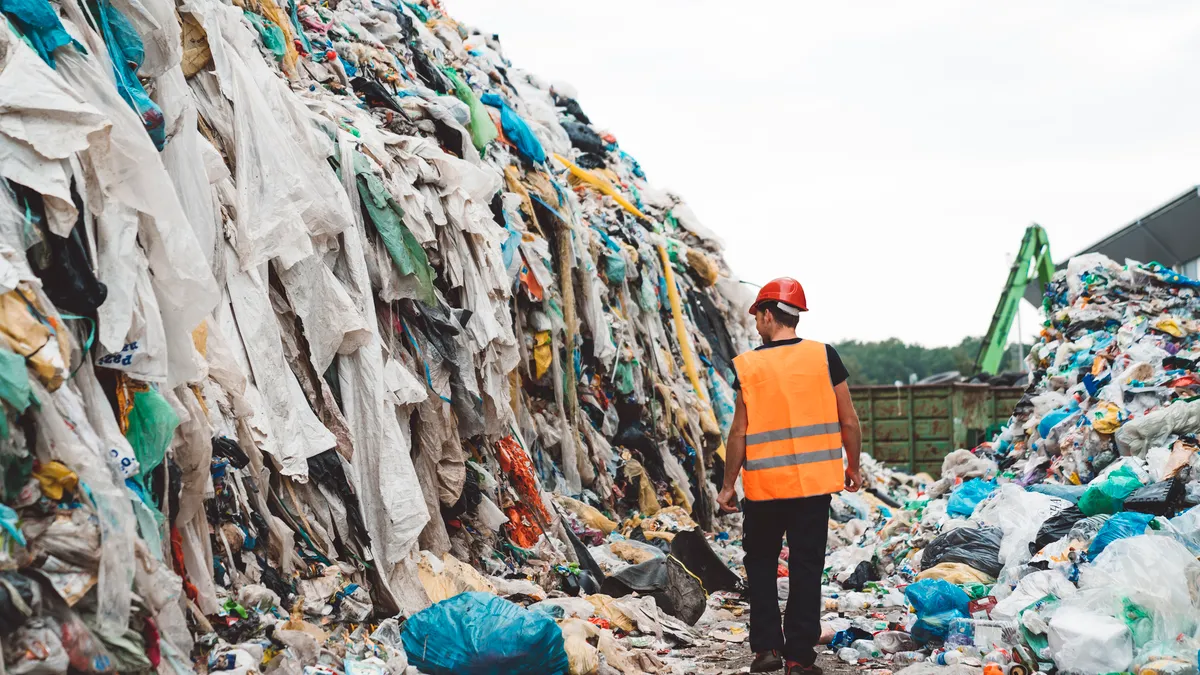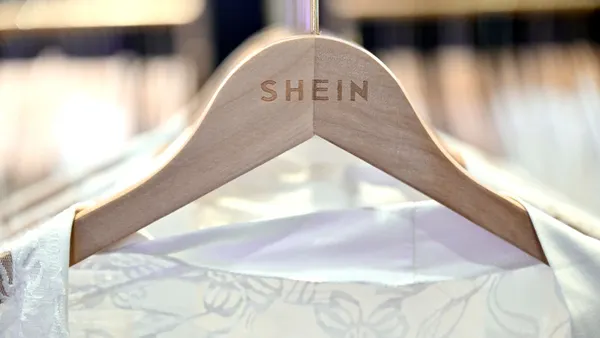Dive Brief:
- The European Union Council said Monday it is backing a proposed regulation to set stronger sustainability requirements for the fashion industry.
- With the new framework, there would be a ban on destroying unsold textiles, footwear and apparel, with a four-year exemption for medium-sized companies and a general exemption for small companies.
- The regulation, which was proposed last year, is part of a larger move by the EU to reform the fashion industry to lower the significant environmental impact of clothes and accessories.
Dive Insight:
The EU continues to lead the march toward legislating sustainable fashion, with an overall goal laid out in the European Green Deal of being the first climate neutral continent by 2050.
The latest proposal not only targets the headline-catching clothes-burning practice but also establishes rules regarding transparency, including designing a digital product passport that would provide information about an item’s sustainability. The goal is to help consumers and businesses understand more about the lifecycle of the products they’re considering purchasing, as well as facilitate repairs and recycling.
In addition, the regulation targets design requirements to improve durability, stating that current product designs don’t “sufficiently promote sustainability over the whole life cycle.” These issues are exacerbated by the growth of online sales and popularity of fast fashion. The World Economic Forum estimated the number of garments produced annually had reached 150 billion in 2016, up nearly 50 billion from just the year prior.
“Products are being replaced frequently, involving significant energy and resource use in order to produce and distribute new products and dispose of old ones,” the proposal reads. “Due to the lack of relevant information and affordable options, it is still too difficult for economic operators and citizens to make sustainable choices in relation to products given that relevant information and affordable options to do so are lacking. This leads to missed opportunities for sustainability and for value-retaining operations, limited demand for secondary materials and obstacles to the adoption of circular business models.”
Larger companies will have a minimum transition period of 18 months after the framework is approved. The proposal will go to the EU’s member states and the European Parliament for negotiations. If approved, the regulations would replace the Ecodesign Directive enacted in 2009.











